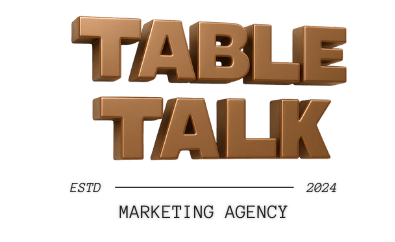What Does a Marketing Consultant Do? A Comprehensive Guide to Their Role and Impact
Understanding the Role of a Marketing Consultant
In today's fast-paced business world, the role of a marketing consultant is more crucial than ever. Companies often seek the expertise of these professionals to navigate the complex landscape of modern marketing. But what does a marketing consultant actually do? This comprehensive guide explores their multifaceted role and the significant impact they have on businesses.

Strategic Planning and Development
One of the primary responsibilities of a marketing consultant is to develop strategic marketing plans tailored to a company's specific needs. They begin by conducting thorough market research to understand industry trends, target audiences, and competitor activities. By analyzing this data, they can identify opportunities for growth and areas needing improvement.
A well-crafted marketing plan serves as a roadmap for achieving business goals. Consultants work closely with clients to set realistic objectives and define key performance indicators (KPIs) to measure success. Their strategic guidance ensures that marketing efforts are aligned with the broader business vision.
Implementation of Marketing Campaigns
Once a strategy is in place, marketing consultants often assist in the implementation of marketing campaigns. This can involve coordinating with various departments, such as sales and product development, to ensure a cohesive approach. They may also oversee the creation of content, the execution of digital marketing tactics, and the management of advertising initiatives.

Consultants are skilled at leveraging different platforms and channels to maximize reach and engagement. Their expertise in digital marketing tools, social media, SEO, and PPC advertising allows businesses to connect with their audience more effectively.
Monitoring and Analyzing Results
After a campaign is launched, a marketing consultant's role shifts to monitoring and analyzing its performance. They use analytics tools to track metrics such as website traffic, conversion rates, and customer engagement. This data-driven approach helps in understanding what strategies are working and which areas need adjustment.
Regular reporting and analysis allow consultants to provide actionable insights, ensuring that marketing efforts continue to evolve and improve. By making data-backed decisions, businesses can optimize their marketing strategies for better results.
Providing Expert Advice and Training
Marketing consultants don't just execute strategies; they also empower businesses by providing expert advice and training. They often conduct workshops or training sessions for in-house teams, sharing best practices and emerging trends in the industry.

This knowledge transfer helps companies build internal capabilities and stay competitive in an ever-changing market. By fostering a culture of continuous learning, consultants enable businesses to adapt quickly to new challenges.
The Impact on Business Growth
The impact of a marketing consultant on a business can be profound. Their strategic insights and hands-on support lead to more effective marketing campaigns, increased brand visibility, and ultimately, higher revenue. By taking a holistic approach to marketing, they ensure that all aspects of a business's communication and promotion efforts are optimized.
In conclusion, hiring a marketing consultant can be a game-changer for businesses looking to enhance their marketing efforts. Their expertise not only drives immediate results but also contributes to long-term growth and success. As companies navigate the complexities of modern marketing, the role of these professionals remains indispensable.
